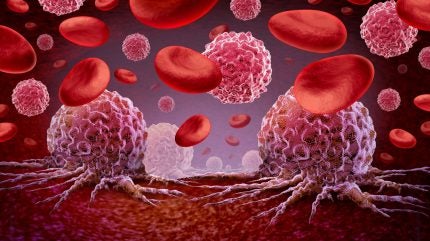
Actinium Pharmaceuticals has reported data from the Phase III SIERRA clinical trial of Iomab-B (Iodine-131-apamistamab) to treat patients with relapsed or refractory acute myeloid leukaemia (r/r AML).
The randomised, multicentre, controlled trial enrolled 153 people aged 55 years and above with r/r AML and those who were heavily pre-treated and had high-risk characteristics such as a TP53 mutation.

Discover B2B Marketing That Performs
Combine business intelligence and editorial excellence to reach engaged professionals across 36 leading media platforms.
It compared the outcomes of those receiving Iomab-B and a bone marrow transplant (BMT) to those who received a physician’s choice of salvage chemotherapy and standard allogeneic BMT in the control arm.
According to the findings, the trial met its primary endpoint of durable complete remission (dCR) and showed a significant improvement in event-free survival (EFS).
The trial achieved a 22% dCR rate in the Iomab-B arm compared to 0% in the control arm.
This result was statistically significant and highlighted the potential of Iomab-B in inducing remission in patients with r/r AML.

US Tariffs are shifting - will you react or anticipate?
Don’t let policy changes catch you off guard. Stay proactive with real-time data and expert analysis.
By GlobalDataHowever, the SIERRA trial did not meet the secondary endpoint of overall survival (OS) on an intent-to-treat basis analysis. This was attributed to the high crossover rate, with nearly 60% of control arm patients eventually receiving Iomab-B followed by a BMT.
Supplemental analyses of the SIERRA trial data indicated improved survival outcomes, particularly in patients with a TP53 mutation and increased one- and two-year overall survival rates in patients aged 65 years and above.
Actinium chairman and CEO Sandesh Seth said: “We believe the SIERRA trial was a major advancement for the field of BMT and targeted radiotherapeutics but most importantly for patients with r/r AML.
“We look forward to completing our interactions with the FDA to finalise the specifics of the additional Phase III randomised trial and working to secure a US partner for Iomab-B. In doing so, we hope to accelerate Iomab-B reaching patients with high unmet need that can benefit from a bone marrow transplant.”





